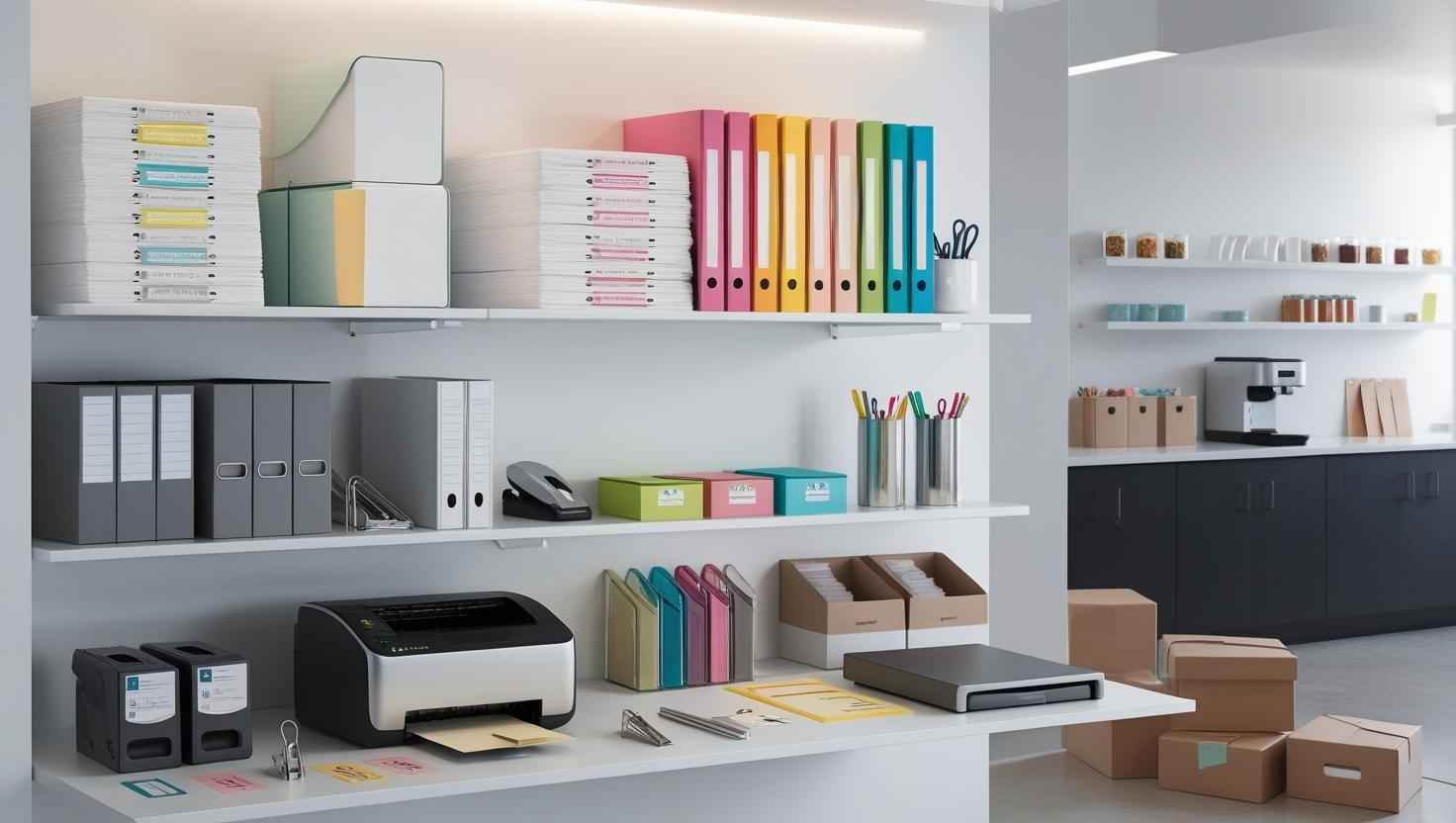Running a small business means juggling many tasks, and it's easy to overlook office supplies until something runs out at the worst moment. Creating a checklist of essentials can save you from last-minute scrambles to the store and keep your office running smoothly. Below is a comprehensive office supply checklist tailored for small business owners, along with tips on how to save time and money by shopping smart (hint: buying in bulk and planning ahead pays off!).
Basic Stationery and Paper
Start with the everyday items that every office needs:
· Paper: Stock up on printer/copier paper. If your business uses special paper (like invoice forms, letterhead, or receipt paper rolls), include those as well.
· Notebooks & Notepads: Keep a supply of notepads for meeting notes or jotting down ideas. Even in a digital age, you’ll find plenty of uses for a quick notepad.
· Pens, Pencils & Markers: Make sure you have plenty of writing instruments. That includes pens (black, blue, red for markup), pencils for sketching or drafting, highlighters for reviewing documents, and markers for whiteboards or labeling.
· Stapler, Staples & Paper Clips: As simple as it sounds, fastening documents together is a daily need. Check that your stapler is working and keep extra staples. Paper clips and binder clips are also handy for keeping related papers together without permanent binding.
· Sticky Notes & Notecards: For quick reminders on a colleague's desk or bookmarking pages in a report, sticky notes are indispensable. Index cards or note cards can serve for flashcards, Rolodex systems, or quick thank-you notes.
Money-Saving Tip: These basic supplies are used continuously, so consider buying them in bulk packs. You'll often get a better unit price and reduce how often you need to reorder. A case of printer paper or a large box of pens can last months and usually costs less per item than buying small quantities frequently.
Printer and Electronics Essentials
Most small offices revolve around a printer or multi-function copier, plus other electronic gear:
· Printer Ink & Toner: Always keep at least one spare cartridge for each printer (inkjet or laser) you use. Running out of ink in the middle of printing an important contract can stall your work. If you have a copier or fax machine with its own toner, have a backup for that too.
· Printers & Paper Shredders: If you're just setting up, you may need the equipment itself. A reliable printer/scanner combo is crucial. Additionally, a shredder is important for securely disposing of sensitive documents; make sure yours is in good working order and oil it occasionally for maintenance.
· Batteries & Chargers: Many office devices (like wireless mice, keyboards, or label makers) need batteries. Keep a variety of batteries (AA, AAA, etc.) on hand. Also, have extra phone chargers or USB cables around – someone’s phone or tablet is bound to need a charge during the workday.
· External Storage & Tech Accessories: It's wise to have at least one external hard drive or a few USB flash drives for data backups or transferring files. Also consider surge protector power strips to protect your electronics and provide ample outlets for all your gadgets.
· Computer Accessories: Items like an extra mouse, keyboard, or even a spare monitor cable can be lifesavers if something breaks unexpectedly. Having these backups means no downtime waiting for a replacement.
Time-Saving Tip: Keep a list of the specific ink or toner models your devices use. This way, reordering the correct cartridges from a supplier like Bloomskins.com is quick and error-free. Some small businesses even set up automated deliveries for ink through subscription services to ensure they never run out.
Organization and Filing Supplies
An organized office is an efficient office. Make sure you have:
· File Folders & Hanging Files: Use manila folders or color-coded folders to sort documents by client, project, or category. Hanging file folders fit into file cabinets or portable file boxes and keep everything upright and accessible.
· Binders & Dividers: For reference materials, training manuals, or archives of past projects, 3-ring binders are ideal. Include index dividers to section them by topic or date. This keeps information tidy and easy to flip through during meetings.
· Labels: Whether you use a label maker or printable labels, have a way to clearly mark files, drawers, and storage boxes. Labeled storage means no more guessing what’s inside a box or which binder holds the 2024 invoices.
· Storage Boxes: If you accumulate a lot of paperwork that needs to be kept (tax records, old contracts, etc.), bankers boxes or storage totes are great for archiving. Keep a few on hand so you can store away older files at year-end while keeping current files easily reachable.
· Desk Organizers: In a small office, team members might appreciate organizers for their own desks – like trays for incoming/outgoing paperwork, pen holders, or small drawer organizers for paper clips and staples. A tidy desk can boost focus and productivity.
Efficiency Tip: Encourage a routine where, say, at the end of each month, files are properly labeled and archived if needed. When everyone knows where to find documents and supplies, it reduces downtime and frustration. Investing a bit in organization supplies pays off with time saved searching for things.
Mailing and Shipping Supplies
Even if most communication is digital, businesses still have to mail things out or receive shipments:
· Envelopes (Various Sizes): Standard #10 envelopes for letters, window envelopes for invoices, and larger manila envelopes for mailing documents or contracts without folding them. Padded envelopes are useful if you need to send small items or something that needs a bit of protection.
· Postage Stamps & Mailing Labels: Keep a roll of postage stamps or a postal meter refill if you send mail regularly. Printable mailing labels (or hand-written ones) are useful for packages. Having these ready prevents last-minute post office runs.
· Packing Tape & Shipping Boxes: If your business ships products or samples, stock different sizes of shipping boxes and plenty of packing tape. Bubble wrap or packing peanuts are also important to protect items in transit.
· Return Address Labels: Pre-printed return address labels with your company name save time on each envelope or package and give a professional touch.
· Mail Sorter or Incoming Mail Tray: As part of staying organized, have a designated spot for incoming mail and outgoing mail so nothing gets lost or forgotten. A simple tray or wall-mounted sorter near the office entrance works well.
Budget Tip: Check if buying shipping supplies in bulk or through an office supplier can reduce costs compared to the local post office or shipping store. Many office supply retailers offer discounts on packs of envelopes or boxes, which can add up in savings over time.
Breakroom and Cleaning Supplies
A happy workplace often runs on coffee and clean spaces! Don’t forget:
· Coffee, Tea & Breakroom Snacks: If you provide coffee or tea for your team or clients, make sure you have a coffee maker, filters, ground coffee or pods, and a variety of tea bags. Stash some healthy (and maybe a few indulgent) snacks for those afternoon energy boosts. Don’t forget disposable cups, stirrers, sugar, and creamer as needed.
· Disposable Plates, Cups & Utensils: If your office has meals or regularly hosts guests, it’s useful to have a stock of paper plates, napkins, cups, and plastic utensils. These come in handy for impromptu lunches or celebrations.
· Cleaning Supplies: A clean office is essential for health and morale. Keep basics like all-purpose cleaner, glass cleaner, paper towels, and disinfectant wipes to handle spills or quickly sanitize surfaces. Bathroom supplies are a must if you have an in-office restroom: toilet paper, hand soap, and toilet cleaner or bleach. Don’t forget trash can liners for all the waste bins and maybe air fresheners to keep the space smelling pleasant.
· Hand Sanitizer & Tissues: Especially during cold and flu season, having hand sanitizer pumps around the office and tissue boxes on a few desks or in common areas is a good practice. It helps maintain a healthier workplace.
· First Aid Kit: Accidents happen, even minor ones. A basic first aid kit with band-aids, antiseptic wipes, pain relievers, and other essentials should be easily accessible in your office.
Time-Saver: You can often set up recurring orders for consumables like coffee, paper towels, or soap, so you never run low. With a vendor like Bloomskins, you could schedule deliveries at regular intervals, which means one less thing to remember.
By keeping this checklist in mind, you can ensure your small business is always stocked with the essentials to operate efficiently. No more borrowing paper from the office next door or rushing out for ink when the printer stops – you'll have what you need at your fingertips.
Remember, planning ahead is the key. When you notice supplies running low, note it down immediately or reorder before they run out completely. Many small businesses find it helpful to do a monthly or quarterly inventory of supplies.
And to truly save time and money, consider consolidating your orders with a single reliable supplier. Bloomskins.com offers over 40,000 household and office essentials, which means you can find everything on this checklist in one place. Buying in one bulk order can also cut down on shipping costs and take advantage of volume discounts. Plus, less time shopping around means more time focusing on growing your business.
Stay organized, shop smart, and your small office will hum along smoothly with happy, well-equipped team members!

